While most of the world rarely thinks about telegrams in our digital age, these items still appear in most archives.
However, many telegrams leave us with more questions than they answer. A telegram was almost always short, because writers were often charged by the word.
Now that we have become accustomed to email inboxes and unlimited text messaging, it can be shocking to see very important or intimate telegram messages written in brief, quick phrases. Recently, as I was working with a new collection (MSS 1658 AV), I found an item that clearly demonstrates this.
. 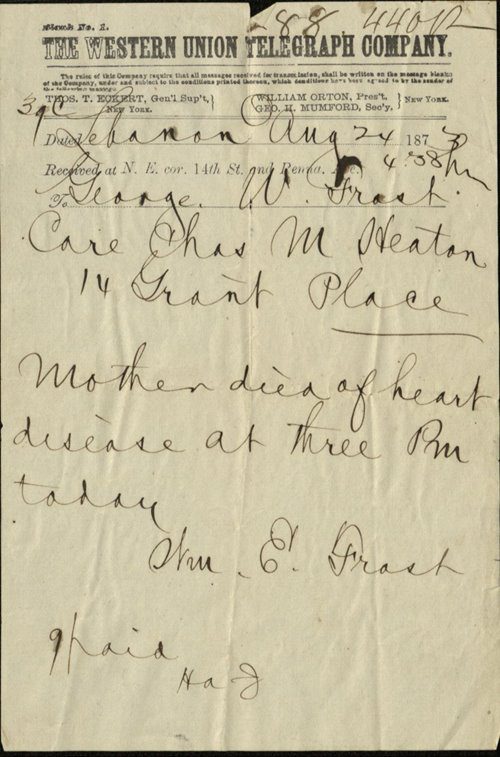
The message on this telegram reads, “Mother died of heart disease at three Pm today.”
This particular telegram was written by William E. Frost of Lebanon, Ohio, to his brother George W. Frost who was living in Washington D.C. while working for the National Pension Commission. It was 1873- Alexander Graham Bell wouldn’t patent the telephone for another three years. So if William wanted to share this important family news, the only time sensitive way to do so was the telegram.
After seeing this telegram, I started to wonder about the kinds of messages that Ohioians were regularly writing during the heyday of the telegraph service. The brief language of the telegram is exciting to decode.
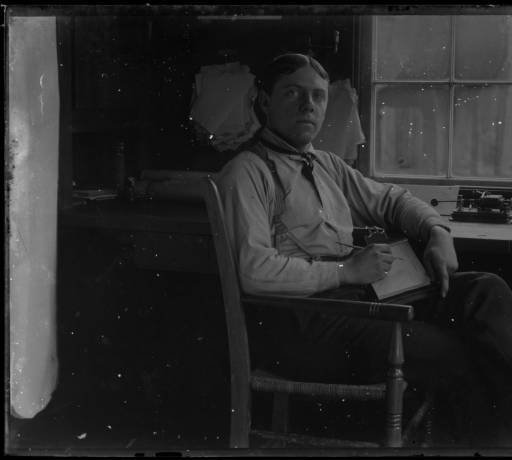
Luckily, all of our collections here at the Ohio History Connection can work together to give us a full picture of what it was like to live in Ohio in the past. After searching our catalog, I found a few more telegrams I was interested in.
Below are some of the most personal, interesting, important, or unique telegrams that I found. I’ve put them in this post with little context, so that you can see if you can decode the concise language of the telegram. If you would like to learn more, you can click on the collection name under each photograph to see where it came from.
If you are new to telegrams and want to learn more, check out this great article.
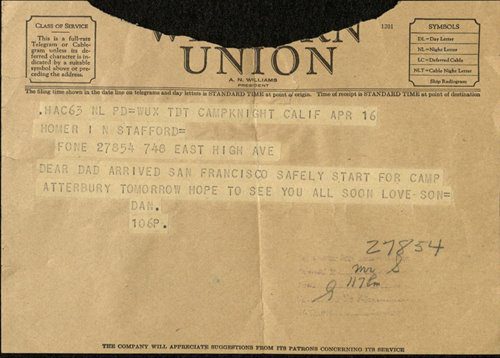
VFM 5912 Daniel Newton Stafford Papers
From Campknight California April 16: DEAR DAD ARRIVED SAN FRANCISCO SAFELY START FOR CAMP ATTERBURY TOMORROW HOPE TO SEE YOU ALL SOON LOVE SON DAN.
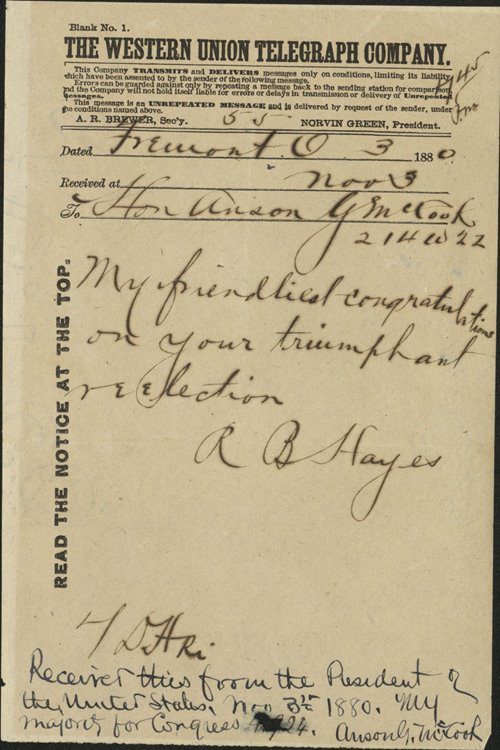
VFM 2467 Anson George McCook Papers
From Freemont, Ohio November 3, 1880, to Honarble Anson George McCook:My friendliest congratulations on your triumphant reelection. R. B. Hayes.
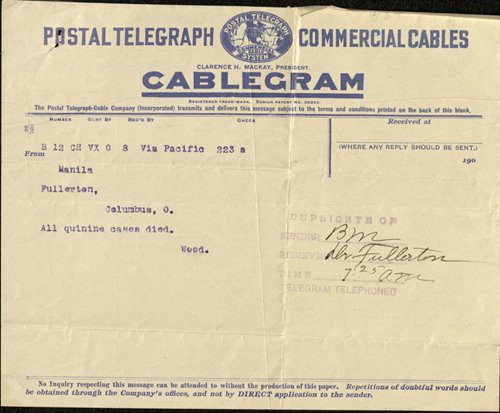
VFM 5824 Erskine B. Fullerton Correspondence
Sent from Manila to Fullerton in Columbus, Ohio: All quinine cases died. Wood.
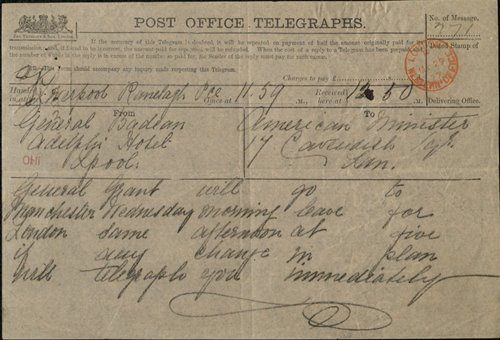
VFM 1702 Ulysses S. Grant Papers
From General Badean in Liverpool to the American Minister in London: General Grant will go to Manchester Wednesday morning leave for London same afternoon at five if any change in plan will telegraph you immediately
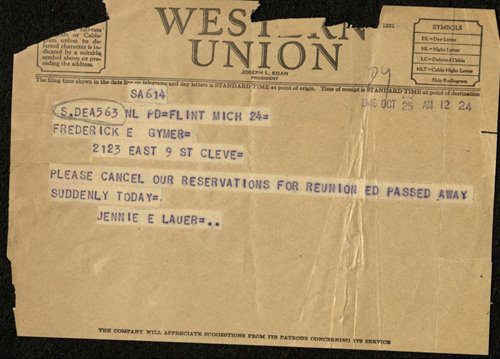
VFM 5692 George Beck correspondence
October 25, 1946: PLEASE CANCEL OUR RESERVATIONS FOR REUNION ED PASSED AWAY SUDDENLY TODAY, JENNIE E LAUER.
Little Steel Strike Family Telegrams
To Mrs. Lean Rugi at the Republic Steel Tin House Sorting Room: COME HOME AT ONCE OR IT WILL BE TOO BAD FOR YOU GEORGE RUGI.
MSS 1510 Charles Walder Parke World War II Collection
To Mrs Charles S. Parke in Cleveland Ohio, July 4, 1944: HI YOU ALL EVERYTHING GOING FINE REMEMBER THE DATE OF THIS CABLE AM WELL LOVE TO ALL WALDER PARKE.
One more quick note…
These telegrams are very interesting and an exciting part of the Ohio History Connection’s collection. However, most telegrams don’t make it to an archive.
You may have noticed the condition of these telegrams.Telegrams were regularly printed on very acidic paper, which means they break down very quickly. Also telegrams were meant to be expedient and easily discarded- do you save every text message and email you receive?
Imagine how many other interesting telegrams could have been sent in Ohio’s past!